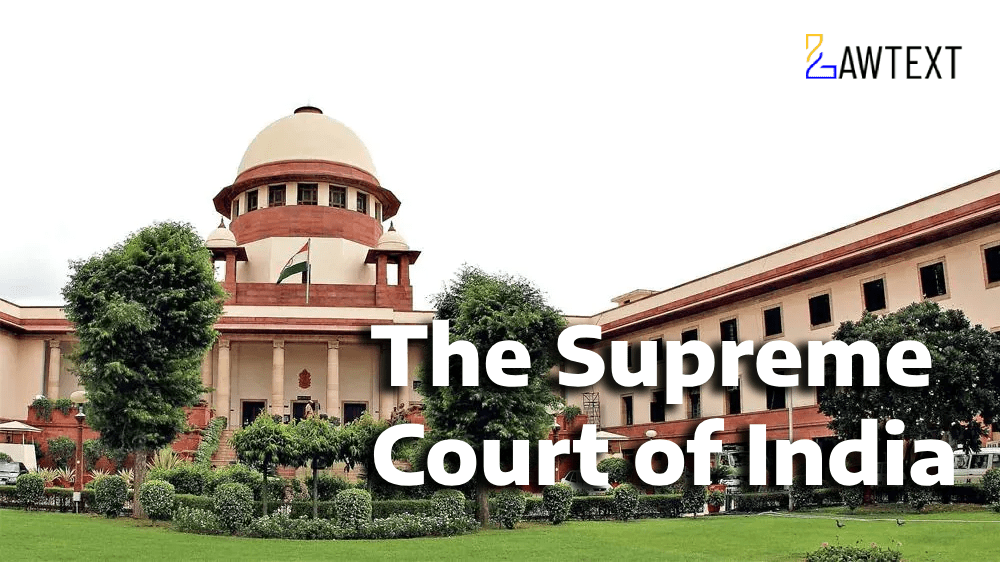

Specific Performance and Possession – The Supreme Court held that the appellants were entitled to specific performance of the sale agreement and possession of the suit property, as decreed by the trial court and affirmed by the High Court. The respondents, who were nephews of the vendors, attempted to obstruct the execution of the decree by claiming to be cultivating tenants. The Court found their claims to be collusive and without merit. (Paras 5-10, 60-72)
Execution Proceedings – The Court emphasized that execution proceedings should not be delayed unnecessarily. The executing court must ensure that the decree is executed promptly, and any objections raised by third parties should be dealt with expeditiously. The Court directed that the execution proceedings be completed within six months. (Paras 73-77)
Collusion Between Vendors and Respondents – The Court found that the respondents’ claims of being cultivating tenants were collusive and aimed at frustrating the decree. The revenue authorities had granted them a certificate of possession based on a “no objection” from the vendors, who had already transferred the title to the appellants. The Court held that such collusion could not defeat the appellants’ right to possession. (Paras 60-72)
Amendments to Execution Petition – The Court held that the appellants’ application for amending the execution petition should have been allowed, as it was within the framework of the decree. The High Court’s rejection of the amendment was erroneous. (Paras 71, 78)
Delay in Execution Proceedings – The Court expressed concern over the inordinate delay in execution proceedings across the country and directed all High Courts to ensure that execution petitions are disposed of within six months. (Paras 73-77)
The Court held that the respondents’ claims of being cultivating tenants were collusive and without merit. The Court emphasized the need for prompt execution of decrees and directed that execution petitions be disposed of within six months. (Paras 60-72, 73-77)
The Supreme Court allowed the appeals, set aside the impugned judgment of the High Court, and directed the executing court to ensure that vacant and peaceful possession of the suit property is handed over to the appellants within two months. (Paras 78-79)
Code of Civil Procedure, 1908 (CPC) – Sections 47, Order XXI Rules 35, 97, 98, 99, 100, 101, 103.
Tamil Nadu Cultivating Tenants’ Protection Act, 1955 – Sections 3 and 6.
Specific Performance – The appellants sought specific performance of a sale agreement dated 30.06.1980, which was decreed by the trial court and affirmed by the High Court. (Paras 5-10)
Cultivating Tenants – The respondents claimed to be cultivating tenants under the Tamil Nadu Cultivating Tenants’ Protection Act, 1955, but the Court found their claims to be collusive and without merit. (Paras 60-72)
Collusion – The Court found that the respondents’ claims were collusive with the vendors, aimed at frustrating the decree. (Paras 60-72)
Execution Proceedings – The Court emphasized the need for prompt execution of decrees and directed that execution petitions be disposed of within six months. (Paras 73-77)
Nature of the Litigation – The appellants filed a suit for specific performance of a sale agreement dated 30.06.1980, seeking execution of the sale deed and delivery of possession of the suit property. The trial court decreed in favor of the appellants, and the High Court affirmed the decree. The respondents, who were nephews of the vendors, obstructed the execution of the decree by claiming to be cultivating tenants. (Paras 5-10)
Who is Asking the Court and for What Remedy? – The appellants sought execution of the decree for specific performance and possession of the suit property. The respondents, who were in possession of the property, claimed to be cultivating tenants and sought to obstruct the execution of the decree. (Paras 5-10)
Reason for Filing the Case – The appellants filed the case to enforce the decree for specific performance and possession of the suit property, which had been obstructed by the respondents. (Paras 5-10)
What Has Already Been Decided Until Now? – The trial court decreed in favor of the appellants, and the High Court affirmed the decree. The Supreme Court upheld the decree and directed the execution of possession in favor of the appellants. (Paras 5-10, 60-72)
Whether the courts below committed any error in upholding the objections raised by the respondents against the execution of the decree on the claim of being in possession of the suit property as cultivating tenants? (Para 40)
Whether the respondents are entitled to the protection of the Tamil Nadu Cultivating Tenants’ Protection Act, 1955, and could the executing court have decided the question of validity of the decree on this ground? (Para 40)
Appellants – The appellants argued that the respondents’ claims of being cultivating tenants were collusive and aimed at frustrating the decree. They also argued that their application for amending the execution petition should have been allowed. (Paras 27-28)
Respondents – The respondents argued that they were cultivating tenants and were entitled to protection under the Tamil Nadu Cultivating Tenants’ Protection Act, 1955. They also argued that the civil court lacked jurisdiction to evict them. (Paras 29-39)
Citation: 2025 LawText (SC) (3) 62
Case Number: CIVIL APPEAL NOS. 3640-3642 OF 2025 (ARISING OUT OF SLP (C) NOS. 8490-8492 OF 2020)
Date of Decision: 2025-03-06
Case Title: PERIYAMMAL (DEAD) THROUGH LRS & ORS. VERSUS V. RAJAMANI & ANR. ETC.
Before Judge: (J. B. PARDIWALA J. , PANKAJ MITHAL J.)
Appellant: PERIYAMMAL (DEAD) THROUGH LRS & ORS.
Respondent: V. RAJAMANI & ANR. ETC.